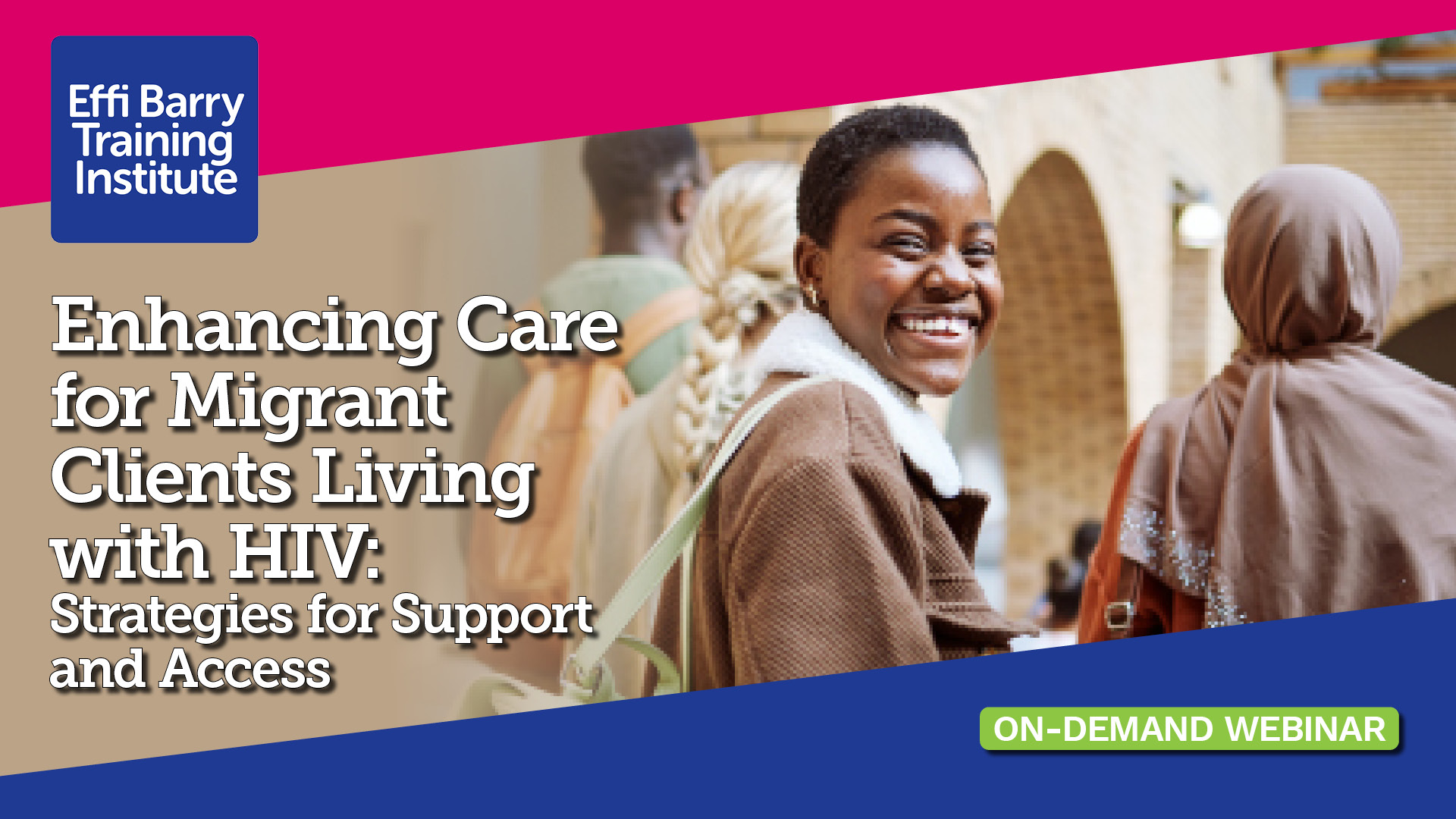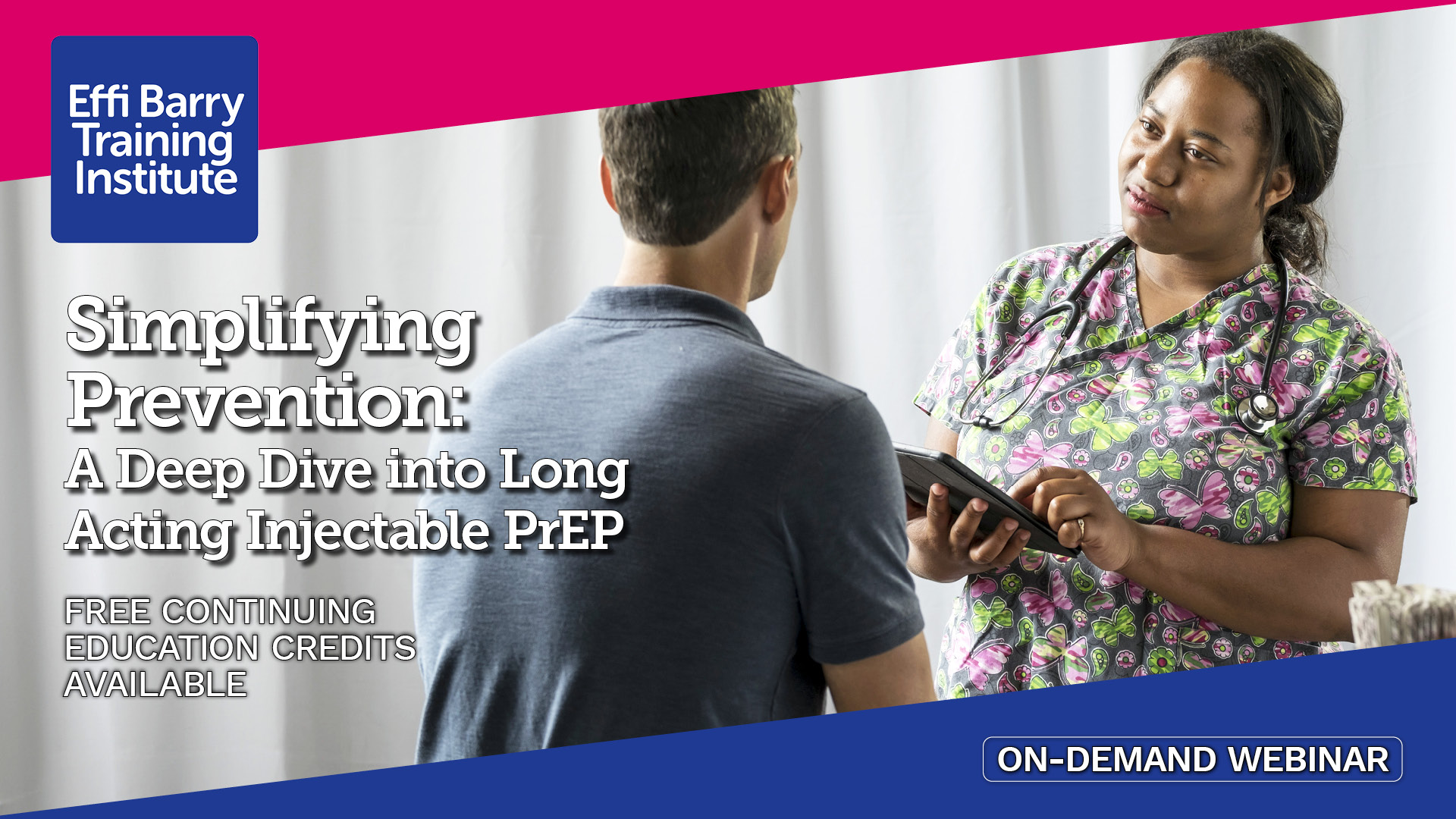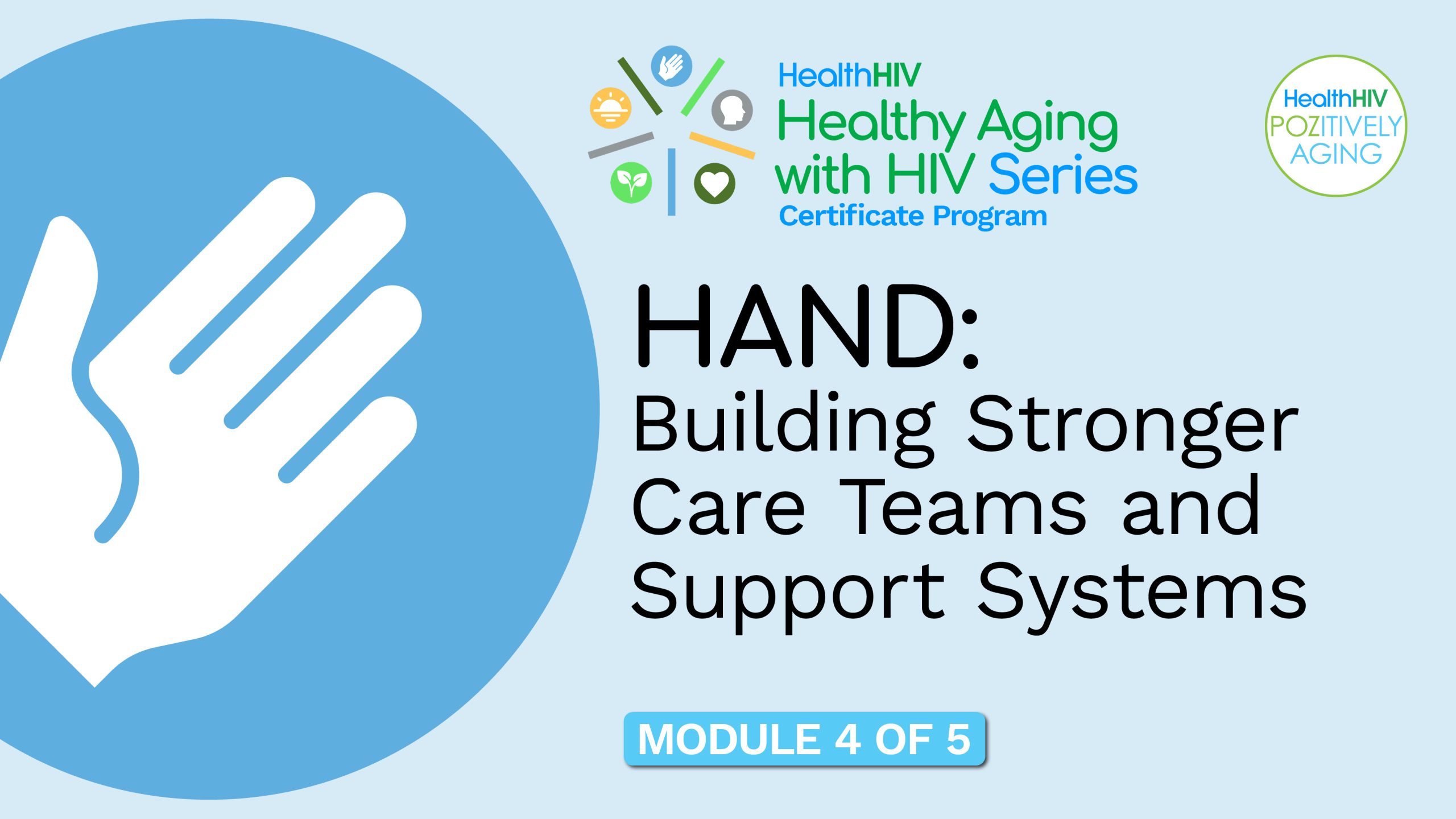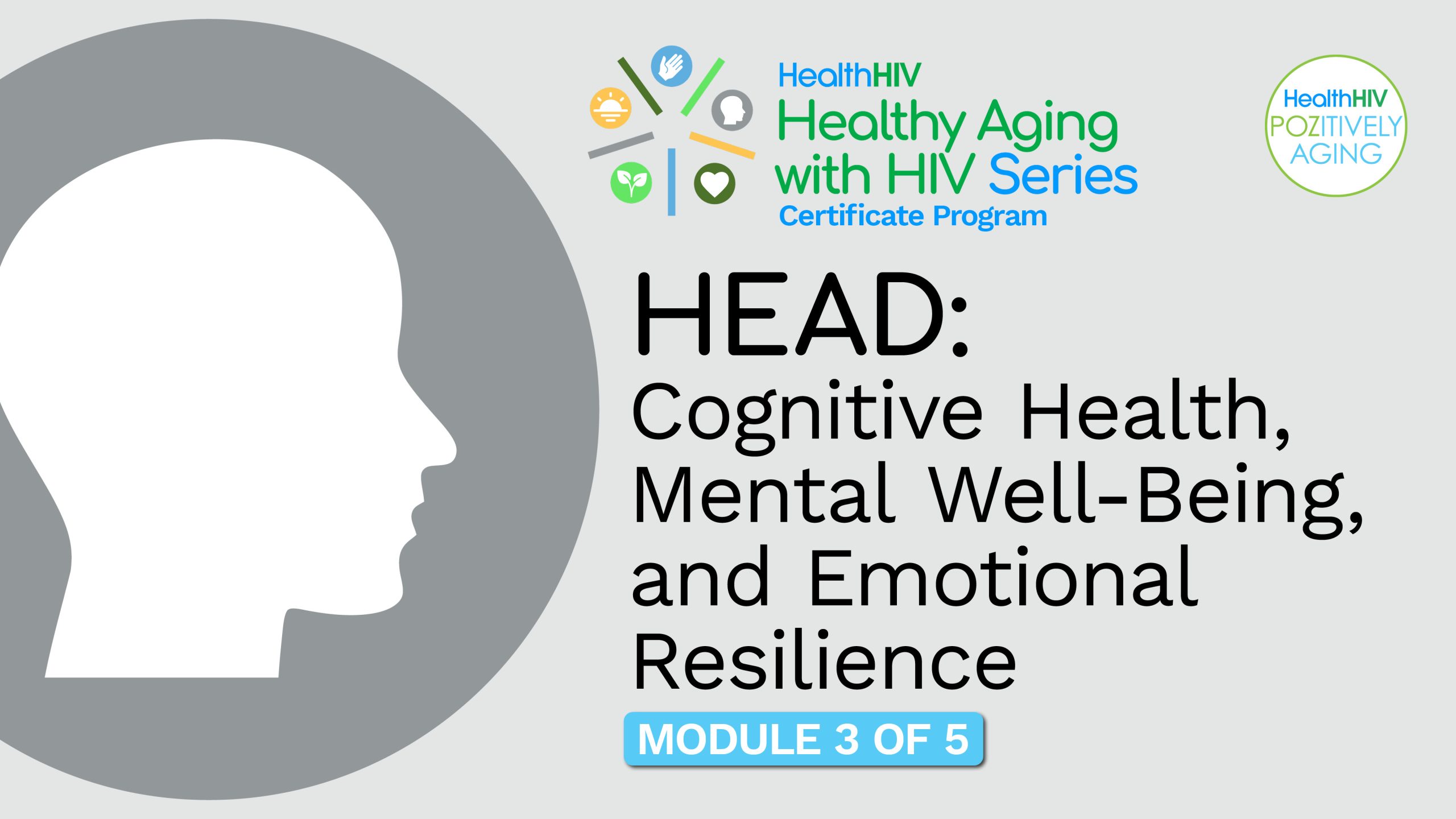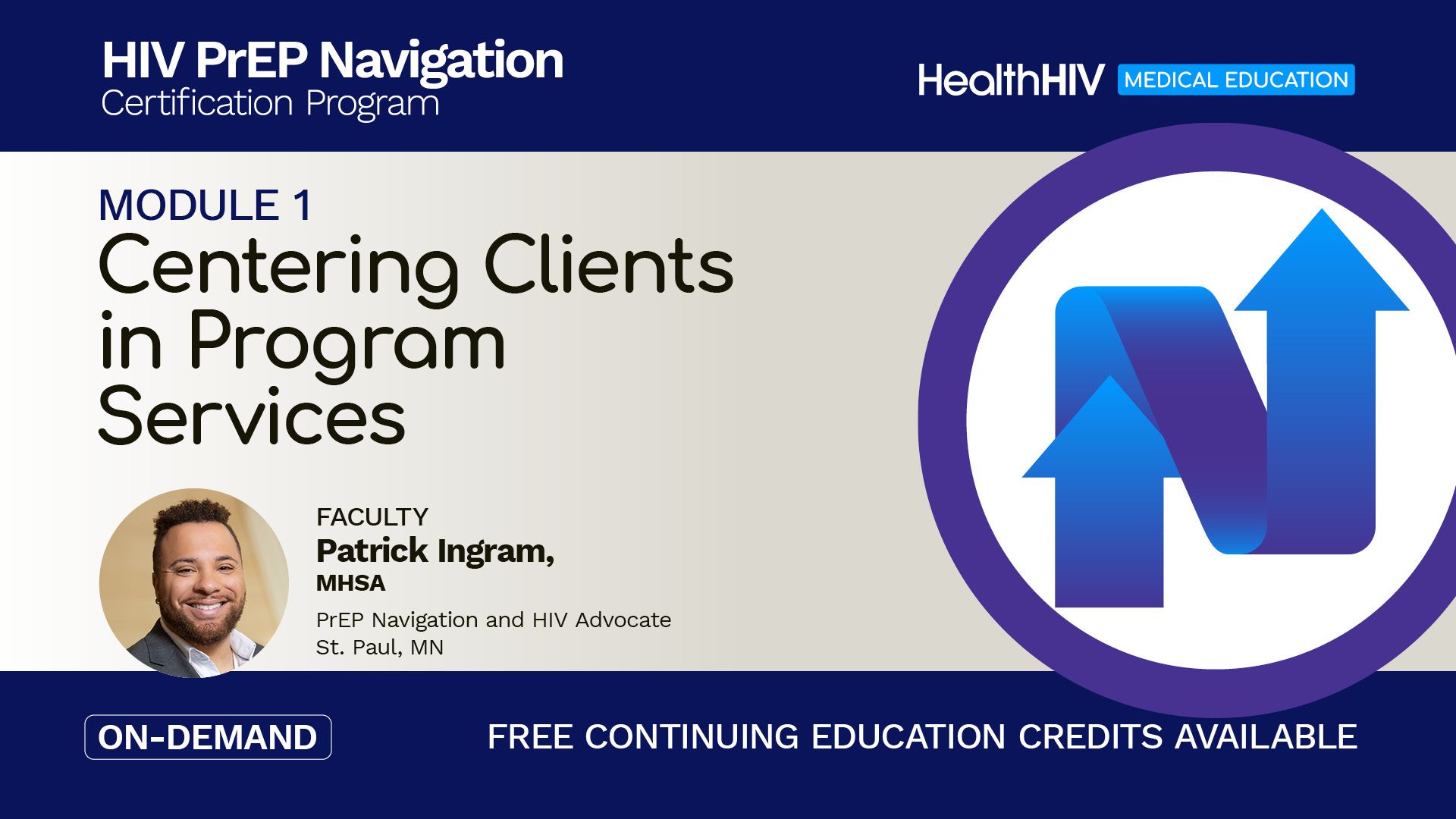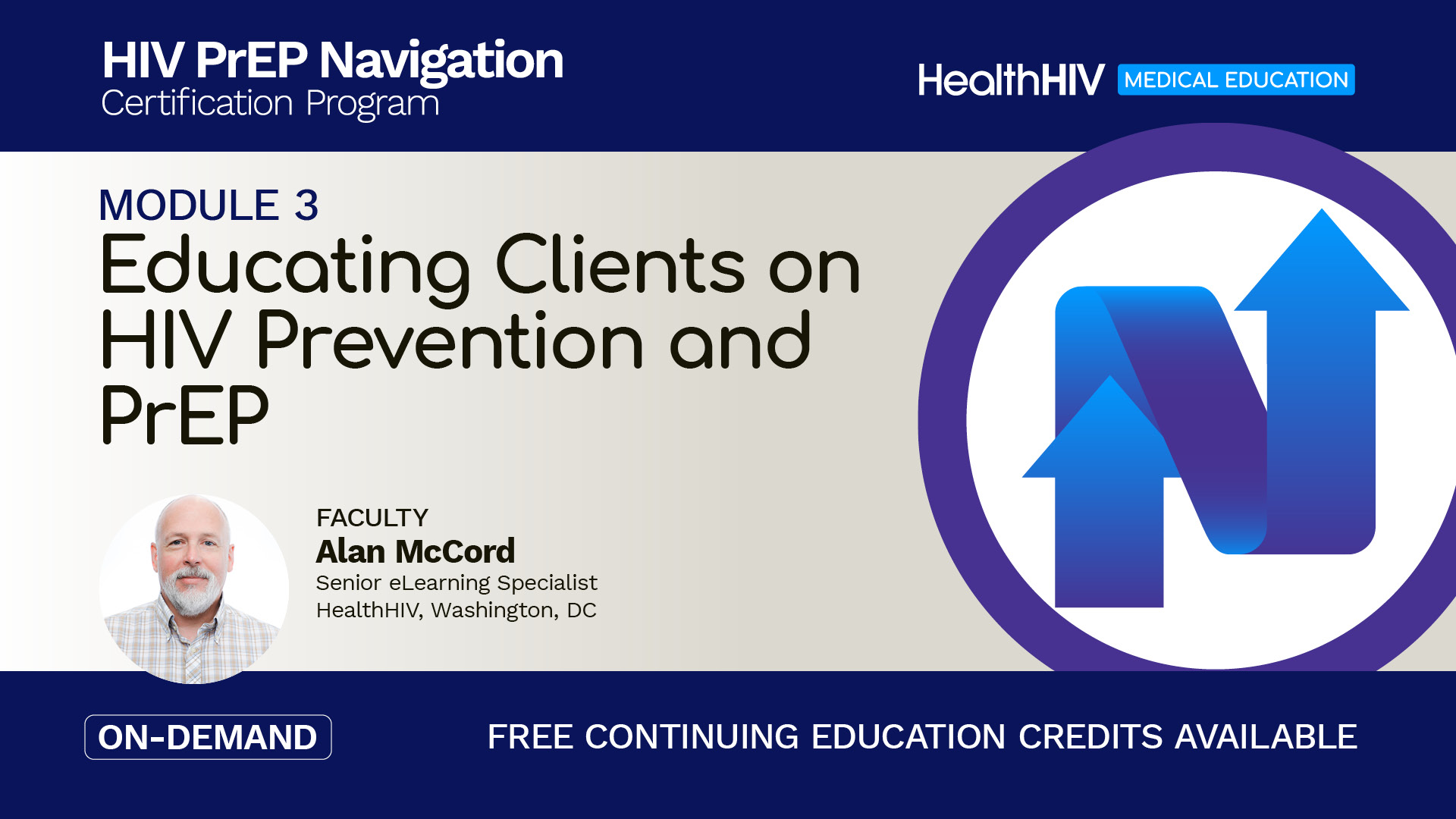Featured
Training Library

Browse our library of HealthHIV trainings — offered in a variety of formats to a diverse audience of clinicians and allied health professionals.

In support of improving patient care, HealthHIV is jointly accredited by the Accreditation Council for Continuing Medical Education (ACCME), the Accreditation Council for Pharmacy Education (ACPE), and the American Nurses Credentialing Center (ANCC), to provide continuing education for the healthcare team. In addition to CME credit, nursing continuing professional development (NCPD) contact hours, continuing pharmacy education (CPE) contact hours, and IPCE credit, HealthHIV is able to offer ASWB credit for social workers, AAPA credit for Physician Associates and APA credit for psychologists through Joint Accreditation. HealthHIV also is accredited by the National Commission for Health Education Credentialing to award CHES®/MCHES® continuing education credits for Certified Health Education Specialists.
-
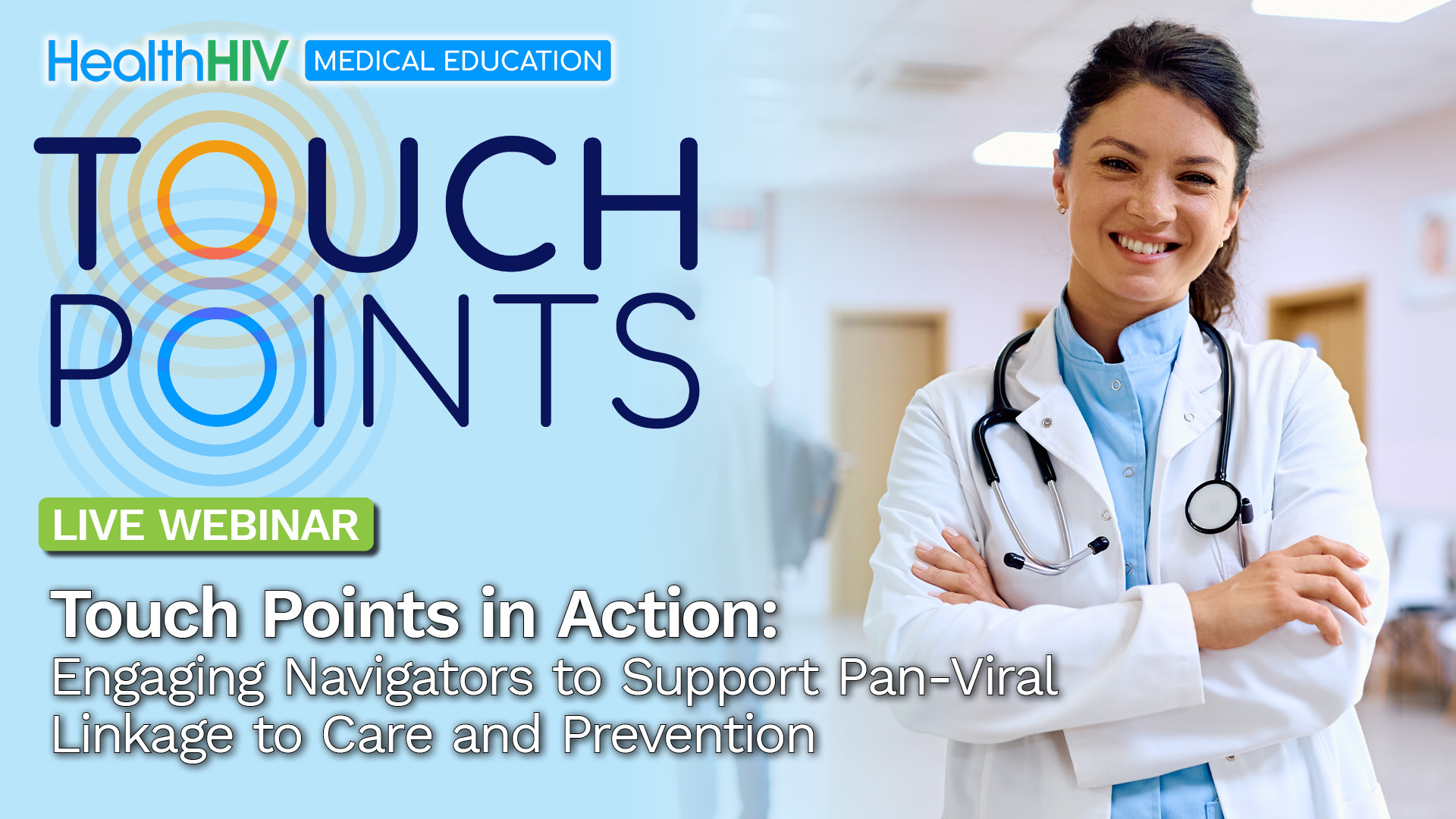
Touch Points In Action: Engaging Navigators to Support Pan-Viral Linkage to Care and Prevention
February 4, 2026
This webinar explores how patient navigation models can be optimized within fast-paced, high-volume environments serving patients who may not be regularly engaged in care. Participants will learn practical approaches for brief interventions, health education, linkage to care, and follow-up coordination that fits within the unique workflows of emergency departments and student health centers.
-
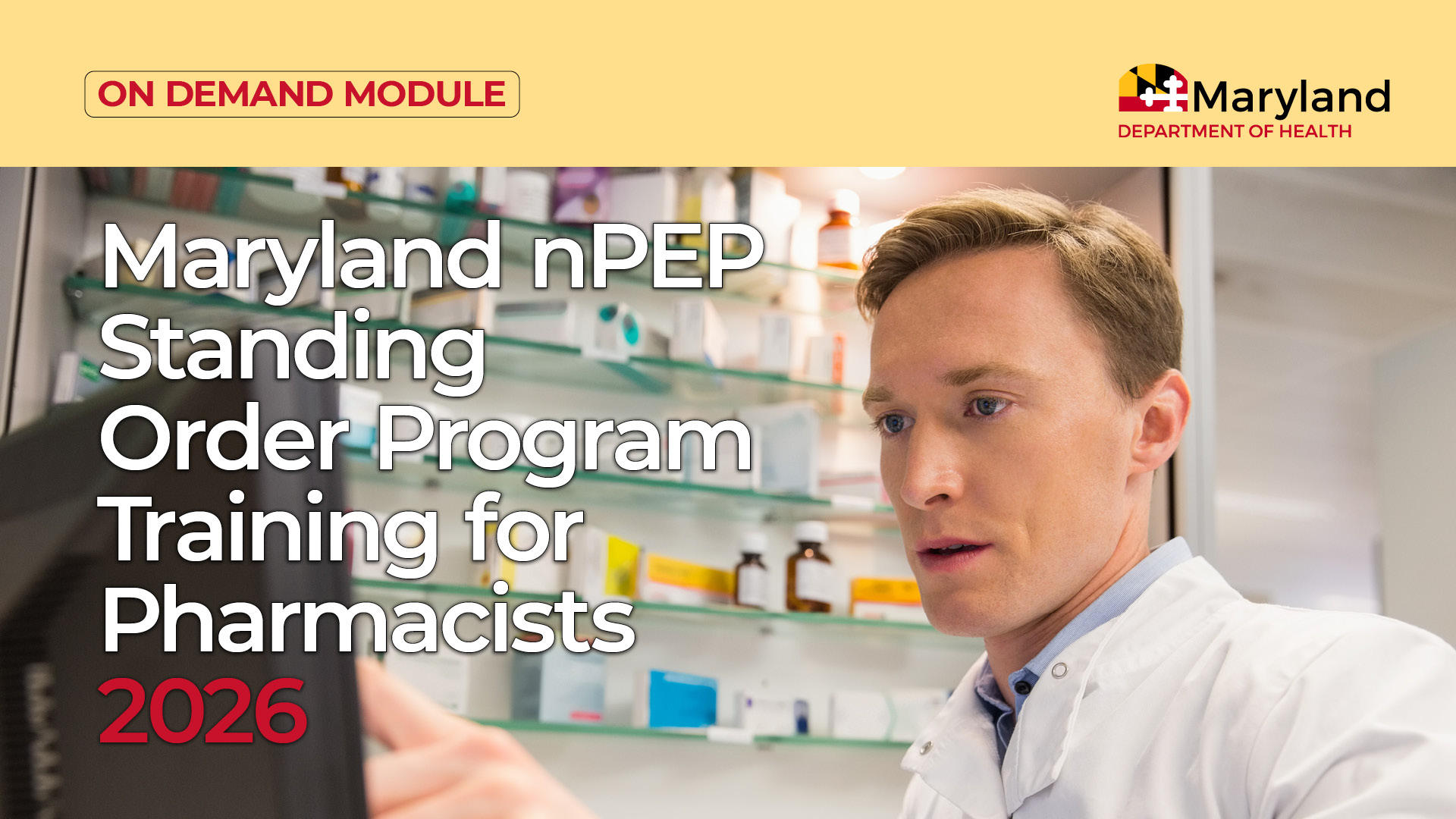
CREDIT AVAILABLE
Maryland nPEP Standing Order Program Training for Pharmacists 2026
February 2, 2026
The 2024 Maryland Legislative Session concluded with the approval of HB0127, which established the Non-Occupational Post-Exposure Prophylaxis (nPEP) Standing Order Program (“The Program”). The Program authorizes pharmacists to dispense nPEP under certain circumstances. This module presents to pharmacists the clinical and administrative tasks necessary to prescribe and/or dispense nPEP under a standing order when requested.

